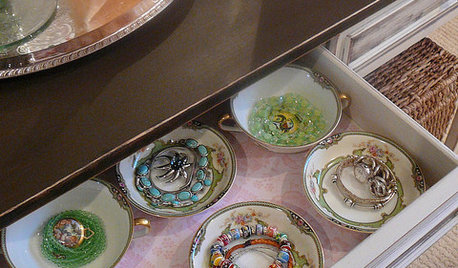Anyone experiment with Milk?
Sheila_GeorgiaPeach
21 years ago
Featured Answer
Comments (20)
mikie_gw
21 years agoSheila_GeorgiaPeach
21 years agoRelated Professionals
Ilchester Landscape Architects & Landscape Designers · Simi Valley Landscape Architects & Landscape Designers · Wakefield Landscape Contractors · Addison Landscape Contractors · Hilton Head Island Landscape Contractors · North Canton Landscape Contractors · Soddy Daisy Landscape Contractors · Wailuku Landscape Contractors · Westford Landscape Contractors · York Landscape Contractors · Sun Valley Landscape Contractors · Lake Arrowhead Decks, Patios & Outdoor Enclosures · Rosemont Decks, Patios & Outdoor Enclosures · Verona Decks, Patios & Outdoor Enclosures · Castle Rock Siding & Exteriorsvgkg Z-7 Va
21 years agoshakaho
21 years agoJuno777
21 years agostorey
21 years agothedaylilykid
21 years agoNelz
21 years agoSheila_GeorgiaPeach
21 years agoNelz
21 years agoSheila_GeorgiaPeach
21 years agoPrettyP0ISON
21 years agoTony_Thiel
21 years agojunkmanme
21 years agoalbert_135 39.17°N 119.76°W 4695ft.
21 years agoSmarty
21 years agoUschiAR
21 years agomikie_gw
21 years agoladybugwv
21 years ago
Related Stories

ARCHITECTUREWorld of Design: A Tokyo Exhibit Experiments With the Future of ‘Home’
Japan’s architects and housing industry explore new ideas for dwellings that respond to changes in society, tech and the natural world
Full Story
PAINTINGWhat to Know About Milk Paint and Chalk Paint — and How to Use Them
Learn the pros, cons, cost and more for these two easy-to-use paints that are great for giving furniture a vintage look
Full Story
LANDSCAPE DESIGNArt Brings a New Experience to Modern Home Exteriors
Sculptures and paintings on a home's exterior can create impact and interest before anyone even steps inside
Full Story
CLOSETSThe Cure for Houzz Envy: Closet Touches Anyone Can Do
These easy and inexpensive moves for more space and better organization are right in fashion
Full Story
MUDROOMSThe Cure for Houzz Envy: Mudroom Touches Anyone Can Do
Make a utilitarian mudroom snazzier and better organized with these cheap and easy ideas
Full Story
COMMUNITYCommunity Building Just About Anyone Can Do
Strengthen neighborhoods and pride of place by setting up more public spaces — even small, temporary ones can make a big difference
Full Story
KITCHEN DESIGN6 Clever Kitchen Storage Ideas Anyone Can Use
No pantry, small kitchen, cabinet shortage ... whatever your storage or organizing dilemma, one of these ideas can help
Full Story
HOME OFFICESThe Cure for Houzz Envy: Home Office Touches Anyone Can Do
Borrow these modest design moves to make your workspace more inviting, organized and personal
Full Story
DECORATING GUIDESThe Cure for Houzz Envy: Guest Room Touches Anyone Can Do
Make overnight guests feel comfy and cozy with small, inexpensive niceties
Full Story
BUDGET DECORATINGThe Cure for Houzz Envy: Living Room Touches Anyone Can Do
Spiff up your living room with very little effort or expense, using ideas borrowed from covetable ones
Full Story





Sheila_GeorgiaPeachOriginal Author